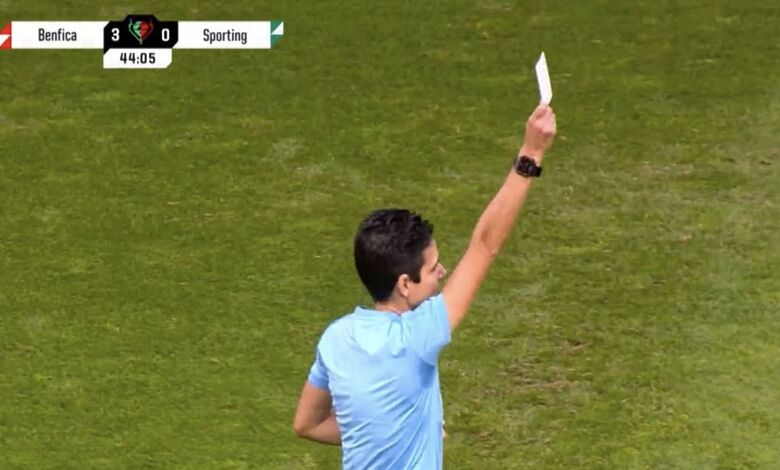Football White Cards

In the world of football, red and yellow cards are ubiquitous symbols of punishment for rule violations. However, to complement this system and acknowledge positive conduct on the field, Portugal’s National Plan for Ethics in Sport (PNED) introduced the concept of the white card, also known as the fair play card.
Introduction of the White Card
The white card is a symbolic representation of ethical behavior and sportsmanship in football. While it is not officially recognized in the laws of the game by the International Football Association Board (IFAB), the Portuguese football federation (FPF) has embraced the concept and implemented it across all its domestic competitions, including the prestigious Liga Portugal.
According to the PNED, the primary aim of the white card is to recognize, highlight, and reward ethically relevant attitudes and behavior of players, coaches, managers, officials, and spectators involved in the game.
Usage of White Cards in Football
The first-ever instance of white card usage in top-flight football occurred during a Taca de Portugal women’s match between Sporting Lisbon and Benfica. In a display of promptness and sportsmanship, both teams’ medical staff received white cards from the referee for their swift response to a medical emergency on the sidelines. This gesture was met with a standing ovation from the crowd, highlighting the significance of ethical conduct in the sport.
Since its introduction, white cards have become a common sight in Portugal’s domestic competitions, particularly in youth-level football. According to a United Nations report, over 2,000 white cards have been awarded, serving as a powerful tool to promote fair play and instill moral values among young players.
Issuance of White Cards
Unlike red and yellow cards, there is no predefined threshold for when a referee can issue a white card. The decision to award a white card is at the discretion of the referee and is intended to acknowledge any ethically positive behavior displayed by individuals directly involved in the game.
Proposed Use of White Cards
Former UEFA president Michel Platini proposed the implementation of white cards across Europe as a disciplinary measure for dissent. Under Platini’s suggestion, players exhibiting dissent would be required to leave the pitch for a designated period, promoting respect for referees and reducing instances of contentious behavior on the field. However, this proposal did not materialize beyond the conceptual stage.
In conclusion, the introduction of the white card in football represents a significant step towards promoting fair play, sportsmanship, and ethical conduct on and off the field. While its adoption remains limited to Portugal, the concept has the potential to influence the broader footballing community and contribute to a more respectful and harmonious sporting environment.




